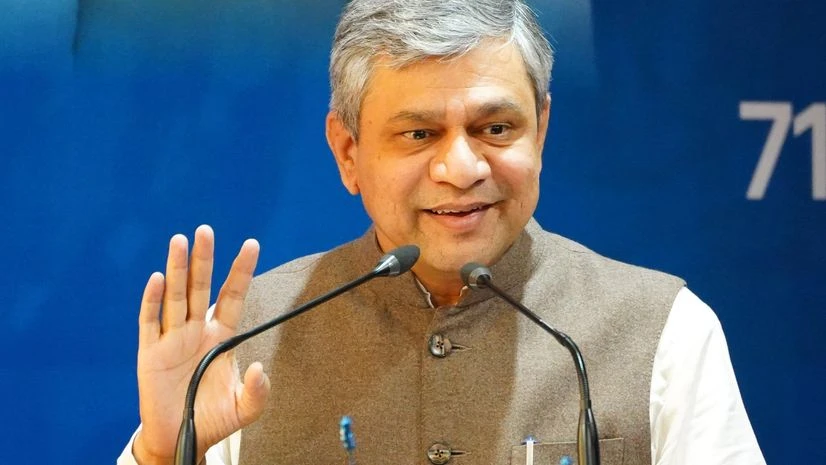The Union Cabinet on Thursday approved two major railway infrastructure projects. The projects, valued at an estimated Rs 6,798 crore, are aimed at improving connectivity in Bihar and Andhra Pradesh.
The two sanctioned projects are:
1. Doubling of the Narkatiaganj-Raxaul-Sitamarhi-Darbhanga and Sitamarhi-Muzaffarpur railway sections, covering a total of 256 km.
2. Construction of a new railway line between Errupalem and Namburu via Amaravati, spanning 57 km.
The doubling of the railway lines in Bihar is expected to improve connectivity with Nepal, North-East India, and border areas, facilitating smoother movement for both passenger and goods trains. It is anticipated to stimulate socio-economic growth across the region by making travel and transportation more efficient, the government said in a statement.
The newly approved railway line in Andhra Pradesh will run through the districts of NTR Vijayawada and Guntur, while also passing through Khammam district in Telangana. This new connection is set to improve regional connectivity, particularly benefiting industries and enhancing mobility for the local population.
More From This Section
Union Minister Ashwini Vaishnaw, in a Cabinet briefing, highlighted the importance of the doubling project for the Mithilanchal region, which will provide strategic connectivity to North Bihar and the North-east. He noted that the project includes the construction of around 40 major bridges, creating a vital transport corridor along the India-Nepal border.
“Today, a very important project in Mithilanchal, providing strategic connectivity to North Bihar and Northeast, was sanctioned by the Cabinet... This complete corridor will become a major transport corridor along the border of India and Nepal. People of North Bihar and Mithilanchal will get good rail connectivity,” Vaishnaw said.
Indian Railways to be extended by 313 km
In total, these projects will extend the Indian Railways network by approximately 313 km, covering eight districts across the three states of Andhra Pradesh, Telangana, and Bihar. The government estimates the projects will take five years to complete, providing essential infrastructure that will reduce travel times, cut logistics costs, and minimise dependence on oil imports. Additionally, they are expected to lower carbon dioxide emissions, supporting India’s climate goals.
The projects are also forecast to generate direct employment, creating approximately 10.6 million human-days of work during the construction phase, the Centre said.
Rail projects key for commodity transport
The government has emphasised that these rail projects are crucial for the transportation of commodities such as agricultural products, fertilisers, coal, and steel. Capacity enhancements resulting from the projects are projected to handle additional freight traffic of 31 million tonnes per annum (MTPA), improving supply chains and fostering economic growth.
The environmental benefits of the projects are also significant. Rail is a more energy-efficient and environmentally friendly mode of transportation, and the reduced CO2 emissions from these initiatives — estimated at 168 crore kilograms — are equivalent to planting seven crore trees.

)